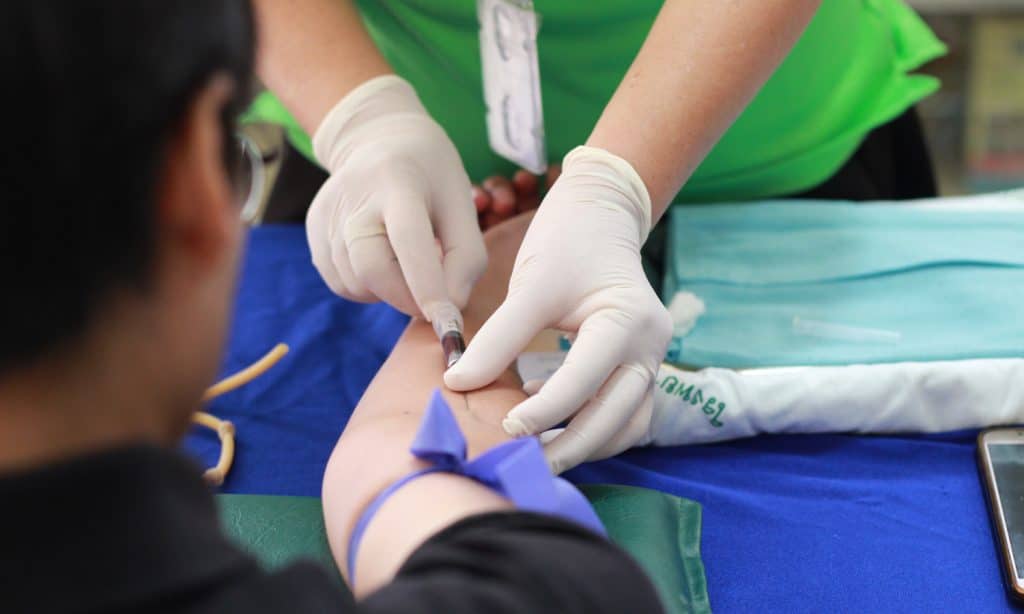Those who are missing this element from their bloodstream experience more severe symptoms of the virus.
A new study suggests that missing a particular element in your blood could result in more severe symptoms of COVID-19.
COVID-19, like all viruses, relies on the efficacy of people’s immune systems. If someone’s system doesn’t have all the tools necessary to battle off these pathogens, it becomes more difficult for the patient to rid themselves of the virus through natural means.

The study, published in the journal Genetics in Medicine, found that individuals without a particular type of natural killer (NK) cell receptor in their blood are more likely than others to experience severe cases of COVID-19. The receptor identified by the study is the NKG2C receptor, responsible for binding to the HLA-E antigen in the bloodstream. Through this process, the receptor manages to kill viruses and clear infections, pivotal developments during the initial stage of the COVID-19 disease.
RELATED: Scheduling Vaccination Appointments Is Complicated — Here’s How To Make It Easier
NK cells are white blood cells known for killing viral cells without needing prior activation. They have been linked with diseases such as HIV and some forms of herpes. Due to natural variations, about 30% of people have this receptor partially available. Only 4% of people naturally lack it.
“Absence of the receptor was particularly prevalent in COVID-19 patients being treated in intensive care units, irrespective of age or gender. Genetic variations on the HLA-E of the infected cell were also associated with disease severity, albeit to a lesser extent,” Elisabeth Puchhammer-Stöckl, lead author of the study, said in a statement.
RELATED: This Is The Most Obvious Symptom Of The New COVID-19 Variant
While the study shows a fuller picture of COVID-19 and a deeper understanding of the disease, it also suggests possible options for treatment. Results like this can provide guidance for drugs that treat COVID-19, hopefully aiding in the prevention and treatment of serious bouts of infection.


